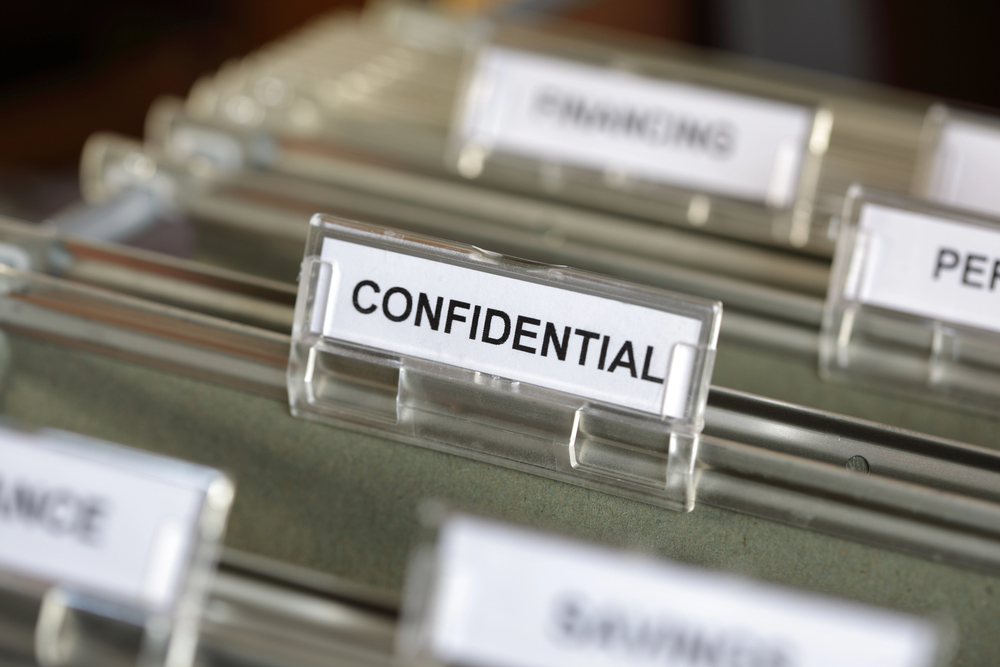How to Anonymously Report a Nursing Home

This guide explains how to anonymously report a nursing home, including where to file a complaint, what details to include, and how a nursing home abuse lawyer can support you during the process.
Reporting suspected abuse or neglect in a nursing home can be intimidating, especially if you fear retaliation from the facility or staff. Fortunately, you have the right to report anonymously.
Whether you’re a family member, employee, or concerned visitor, you can take steps to protect vulnerable people without revealing your identity. Anonymous reporting helps ensure the safety and well-being of nursing home residents while allowing the proper agencies to investigate potential violations.
Can You Anonymously Report a Nursing Home or Health Care Facility?
You can legally and anonymously report a nursing home, assisted living facility, or other health care facility. Many state and federal agencies encourage anonymous reporting to ensure that abuse, neglect, or unsafe conditions don’t go unaddressed. Still, people often hesitate, fearing retaliation, losing their job, or creating tension within their family.
Anonymity allows whistleblowers to protect vulnerable residents while reducing personal risk. Whether you’re a staff member, visitor, or concerned relative, you can file a complaint confidentially and help hold the facility accountable under state and federal regulations.
Who Can Make an Anonymous Report?
Anyone who suspects abuse, neglect, or unsafe conditions in a nursing home or health care facility can file an anonymous report. This includes:
Staff members or caregivers who witness mistreatment;
Family members or visitors concerned about a resident’s safety;
Residents themselves or friends of residents who suspect something is wrong;
Third parties, like volunteers, medical providers, or social services workers.
You don’t need to have direct proof—just reasonable concern. Any person can take action to protect residents in long-term care facilities, and you have the right to remain anonymous while doing so.
Where to File a Complaint Against a Nursing Home Anonymously
Knowing where to send an anonymous report depends on the nature of the abuse and the type of facility involved. Whether you’re reporting physical abuse, neglect, financial exploitation, unsafe living conditions, or have other complaints, different agencies handle specific types of complaints.
Many allow anonymous or confidential reporting through toll-free hotlines or secure online complaint forms. If you’re a staff member, never use employer-provided phones, computers, or email accounts when filing—use your personal devices to help ensure your identity remains protected.
U.S. Department of Health and Human Services (HHS) – Office of Inspector General (OIG)
The Office of Inspector General (OIG) investigates fraud, waste, and abuse related to federally funded health care programs, including Medicare and Medicaid services in nursing homes.
If you suspect overbilling, false documentation, or federal care violations, you can file a complaint online at the OIG fraud reporting portal or by calling 1-800-HHS-TIPS (1-800-447-8477). You may remain anonymous, and you’re encouraged to include the facility’s name, address, and any specific concerns about the suspected abuse or misconduct.
Centers for Medicare & Medicaid Services (CMS)
CMS oversees long-term care facilities that receive Medicare or Medicaid funding. Although CMS does not accept direct complaints, it partners with state survey agencies to investigate health and safety violations. You can file a report anonymously through your state agency by using the CMS state complaint contact list.
These reports may trigger an unannounced inspection or corrective action. Provide details like the nursing home’s name, location, and description of the issue, even without identifying yourself.
Administration for Community Living (ACL) – Eldercare Locator
The Administration for Community Living (ACL) operates the Eldercare Locator, a nationwide resource connecting people with elder support services, including reporting options. If you’re unsure where to file or want guidance, call 1-800-677-1116 or visit eldercare.acl.gov. Operators will direct you to the proper agency in your state.
Calls are confidential, and you are not required to share your name. This is a helpful first step for those unfamiliar with the reporting process or dealing with concerns across state lines.
U.S. Department of Justice (DOJ) – Elder Justice Initiative
The DOJ’s Elder Justice Initiative focuses on protecting seniors from abuse, neglect, and financial exploitation, especially when criminal acts are involved. You can report suspected physical abuse, sexual assault, or financial crimes anonymously through this initiative.
Visit justice.gov/elderjustice for federal resources or call the National Elder Fraud Hotline at 1-833-FRAUD-11 (1-833-372-8311). The hotline is confidential and can connect you with state or federal agencies to begin an investigation without disclosing your identity.
State Department of Health or Public Health Agency
Your state’s Department of Health or Public Health Agency regulates nursing homes and health care facilities. They investigate complaints involving neglect, improper medical care, unsafe staffing ratios, or facility violations. Each state has its own hotline and online portal for filing. You can find your agency via the CDC’s state health department directory.
Include as much detail as possible—even if reporting anonymously—such as the name of the facility, dates of concern, and the nature of the abuse or neglect.
Long-Term Care Ombudsman
A Long-Term Care Ombudsman advocates for residents in nursing homes and assisted living health care facilities. If you observe poor care, neglect, abuse, or facility misconduct, an ombudsman can help investigate while protecting the resident’s rights.
You can report concerns confidentially or anonymously, and they will not disclose your name without your permission. To get connected with your local ombudsman, call 1-800-677-1116 or use the Eldercare Locator.
Adult Protective Services (APS)
Adult Protective Services (APS) handles reports of elder abuse, neglect, or exploitation in non-licensed settings, such as private homes, group homes, or assisted living health care facilities. If you’re concerned about a resident receiving care outside a regulated nursing facility, APS can step in to investigate and arrange services.
To report nursing home abuse anonymously, visit the National Adult Protective Services Association to find your state’s contact. Reports can be submitted online or by phone and will remain confidential.
State Licensing Board or Medicaid Fraud Unit
If the nursing home abuse involves a licensed health care professional, such as a nurse or administrator, report them to your state licensing board. For issues involving Medicaid billing fraud, contact your state Medicaid Fraud Control Unit (MFCU). Both agencies accept anonymous tips and can take disciplinary or criminal action.
Use the National Association of Medicaid Fraud Control Units directory to find the correct agency in your state. Be sure to provide the facility’s name and any relevant facts to help start the investigation.
Federal Trade Commission (FTC) – Identity Theft or Financial Abuse
The Federal Trade Commission (FTC) investigates financial abuse and identity theft, including cases involving stolen benefits, unauthorized charges, or scams targeting nursing home residents. If you suspect financial exploitation, you can report it anonymously at ReportFraud.ftc.gov.
The FTC shares reports with law enforcement or regulatory agencies as appropriate. Include details such as names (if known), the facility involved, and the type of financial harm. You don’t have to provide personal contact information when submitting a report.
911 or Local Law Enforcement if Immediate Danger
If a resident is facing immediate harm, such as physical abuse, assault, or severe neglect, call 911 or your local police department. Officers can remove the resident from danger and initiate a criminal investigation. You can report anonymously, especially in high-risk situations. For non-emergencies, use your local department’s non-emergency line to file a report.
Be ready to give details about the facility, the incident, and those involved—even if you don’t disclose your name.

What Happens After You Submit a Complaint Anonymously
Once you report a nursing home anonymously, the agency receiving the complaint begins by screening the information and assessing the level of risk. If the concern involves nursing home abuse, neglect, or unsafe conditions, an investigation team is dispatched, often without notice to the facility.
Investigators may interview staff and residents and review medical records or facility policies, but your identity is not disclosed, even if it is known. If violations are found, the nursing home may face citations, fines, or corrective action plans. Your anonymity does not prevent a formal investigation from moving forward.
When Should You Report a Nursing Home Anonymously
Anonymous reporting is appropriate when you have reasonable concern about abuse or neglect but fear retaliation or personal consequences. For example:
A staff member witnesses abuse but is afraid of losing their job;
A family member sees unexplained bruises or notices a resident being isolated;
A visitor overhears staff threatening or bullying a resident;
A resident confides in someone but is too scared to report directly.
In any of these situations, anonymous reporting protects your identity while ensuring that concerns about resident safety and well-being are addressed.
Legal Protections for Anonymous Whistleblowers in Health Care Settings
Whistleblowers in health care settings, including nursing homes and assisted living facilities, are protected under federal and state laws. Most states have anti-retaliation provisions that protect individuals who report suspected abuse or neglect in good faith.
Federal laws like the False Claims Act protect those reporting Medicare or Medicaid fraud, while OSHA and HIPAA provide safeguards for health care workers raising concerns about safety or patient privacy.
Even if you choose to report anonymously, these laws are in place to defend your rights if your identity becomes known or if retaliation is attempted by the facility.
Should You Ever Consider Filing Non-Anonymously?
While reporting anonymously helps protect your privacy, there are times when sharing your identity may strengthen the investigation. If you’re a direct witness or have detailed evidence, such as photos, written information, or firsthand accounts, investigators may be better able to act quickly and thoroughly if they can follow up with you.
In cases involving Medicare or Medicaid fraud, identifying yourself may also make you eligible for whistleblower compensation under federal laws. Consider the pros and cons carefully. If you have strong documentation and feel safe doing so, a non-anonymous report can make a bigger impact.

Secure Confidential Legal Support
If you’re concerned about abuse, neglect, or fraud in a nursing home or care facility, you don’t have to face it alone. At Nursing Home Law Center, we offer free, confidential consultations—even if you’re simply looking for guidance on how to report abuse anonymously and what additional information to provide.
We represent families nationwide and handle all cases on a contingency fee basis, meaning you pay no fees unless we win financial compensation for you. Whether you’re ready to take legal action or just want to understand your legal options, we’re here to help protect vulnerable residents and hold facilities accountable. Call us at (800) 926–7565 or fill out our contact form.

